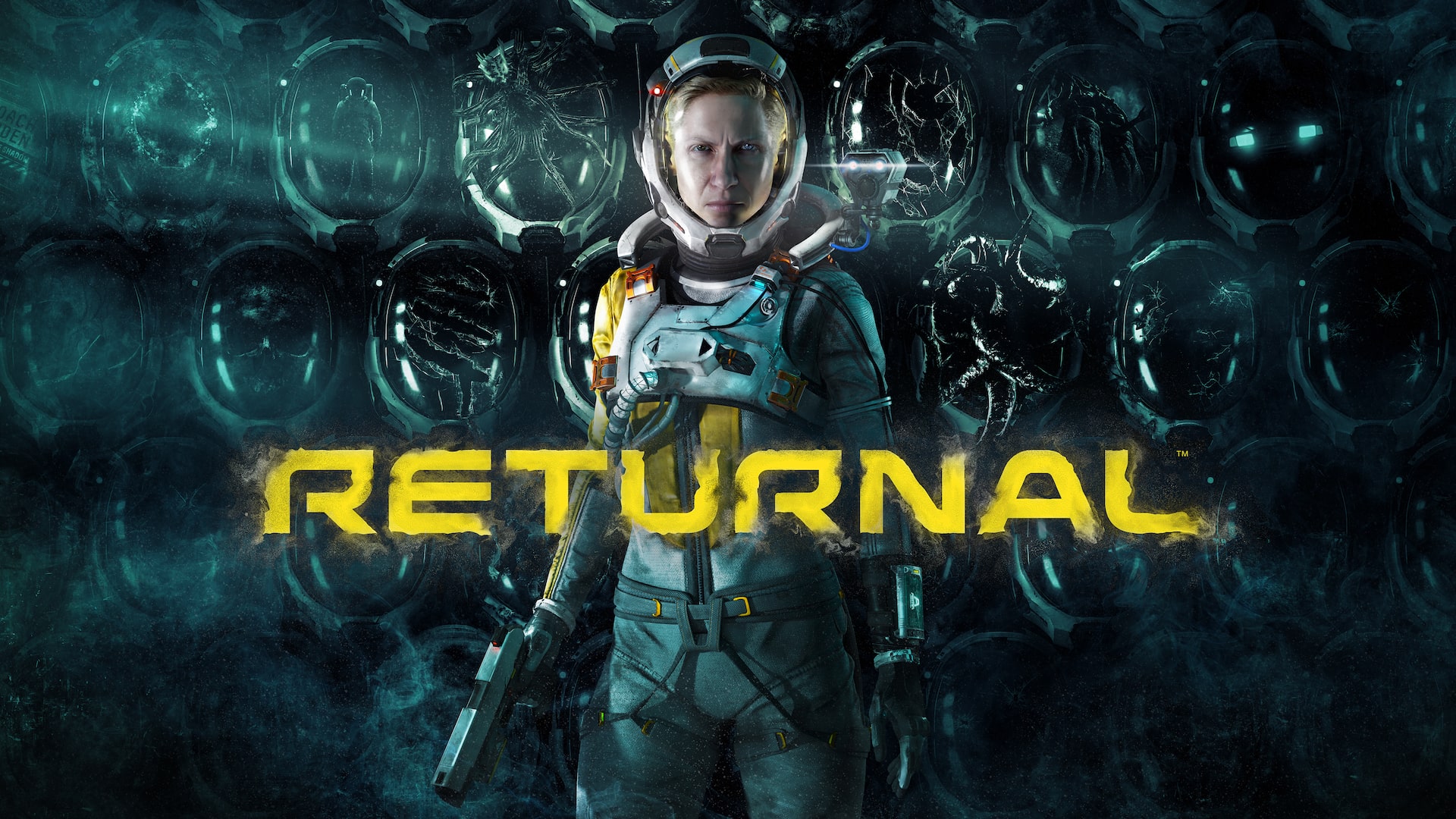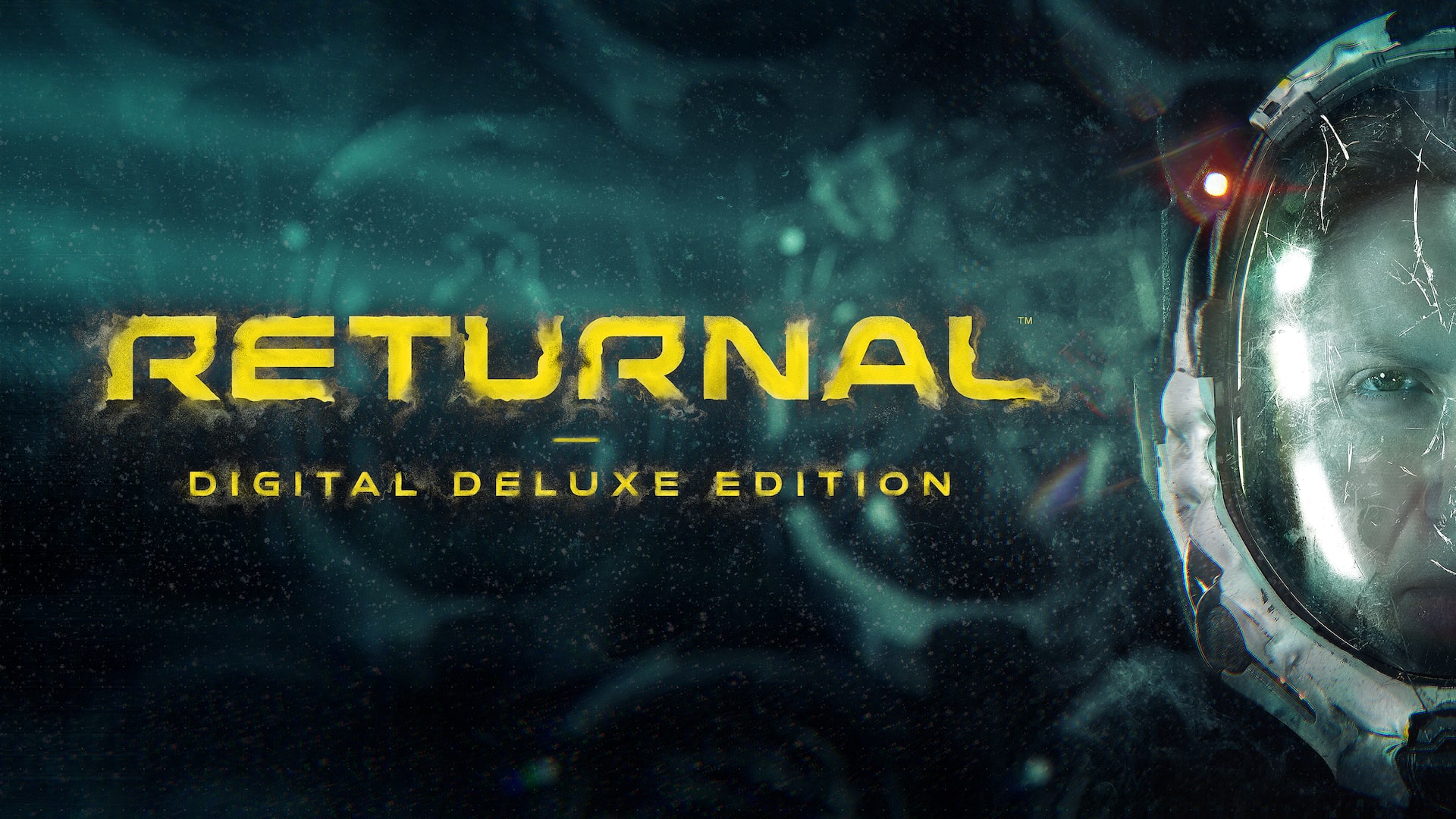Share your thoughts and help other players in the community.

Standard Edition
- Returnal™
Housemarque creatives Harry Krueger, Ville Kinnunen and Gregory Louden discuss the process of breathing life into Returnal’s lead protagonist Selene Vassos.
Game Director
Harry started his career as a gameplay programmer with a passion for game design. He's played a central part in the creative imprint of Housemarque, where he has helped keep the arcade spirit alive for the past 12 years.
Art Director
Ville had a long career in character concept design before joining Housemarque as Art Director. Previous projects include Dragon Age Inquisition, Horizon Zero Dawn, Destiny 2, Deadpool and many more.
Narrative Director
Gregory Louden is an Australian storyteller whose goal is to tell great narratives with a world, a message and a question. Previous projects include Control, Quantum Break, Gravity, Prometheus, World War Z, and many more.
Gregory: Harry and Harri Tikkanen (Housemarque’s co-founder) came up with the original concept and top-level pitch: a character-driven, dark sci-fi, action, time-loop thriller.
Harry: What I like to call Returnal’s 'Hellevator' pitch: an astronaut crash lands on a hostile alien planet trapped in a time loop, where even death is no escape. That initial story was pretty clear from the outset.
Gregory: From that vision, the Narrative team and I started building an idea of who the main character would be. We had the beginning and end to the story figured out and, from this setup, we began to develop Selene. We didn't have her name – that came later – but we knew we wanted someone relatable, fiercely intelligent and most of all human – someone that would contrast the hostile alien world of Atropos.
Harry: We also had a few themes we wanted to include: Lovecraftian, cosmic horror and psychological layers to the story – the character would need to carry some personal trauma to draw from.
Gregory: With that in mind, we built the narrative layer by layer, so that as the player progresses they would gradually understand more about Selene.
Ville: By the time I joined the project, the main character was already in place. I had to flesh out this very powerful female lead and – thankfully - my take on it resonated well. For me Selene just felt like a character that was ready to step out of the collective consciousness. The very first image I created was a greyscale sketch of the main protagonist that ended up as Harry’s phone background and a base for our slideshows for the next two years.
Harry: For Housemarque, gameplay always comes first. If we create a gameplay idea that resonates, we embrace it and support it with our narrative and art direction. We don’t ask ourselves “does it make sense for our character to – say – run this fast?” We instead ask, “fast movement is fun – how can we support this through our character treatment?” In this way we avoid narrative dissonance and strengthen our story through gameplay: your actions as a player define who Selene is just as much as her backstory.
We couldn’t commit to a character who was so emotionally broken or scared that she would be overwhelmed by fear; that would create a huge dissonance with the amazing feats on display in the gameplay. We therefore defined her as “determined to a fault” and made that a central narrative theme: how far are you willing to go to achieve your personal goals? What are you willing to sacrifice?
Gregory: Our goal was to tell a story that was both mysterious and haunting – something that stays with you. We were inspired by stories that leave you with a lot of questions. Player interpretation is critical for this: the best stories, for me, leave you bewildered and unable to process it all at first. I wanted to do just that for players – to present our story as a puzzle – and our objective in delivering that was to leave clues for players to discover.
As such, everything in Returnal is very deliberate. We wanted to create a story that can be examined for as long as it can be played. Players should be willing to question what they read, see and hear in Returnal.
Ville: From a design perspective, our storytelling is all about the single-mindedness of Selene. Her cumulative experience - both on and off Atropos - is something we want to show in everything she has or does; from the ASTRA suit she knows like the back of her hand to her almost supernaturally efficient movements.
Ville: Early designs for Selene were athletic and realistic for the most part, with small exaggerations in the proportions to make her look natural in the gameplay camera. The key thing was finding the correct tech level and feel: the suit needed to have satisfying elements of power fantasy for the player, like the sword and the jump thrusters, but still feel non-military and keep Selene vulnerable and exposed to the hazards of Atropos.
Harry: Like with much creative work, defining our character is a process of iteration. We started high-level and we explored various concepts. Some of the early sketches were closer to a traditional astronaut suit, while other ideas veered closer to a space marine aesthetic. It took a few cycles to find the right balance between the grounded human elements, the power fantasy, and the level of grit and tactility we were after.
Ville: The speed of the gameplay dictated many of the design elements, as did in-session and permanent upgrades like parasites and the hook-shot – a lot of love went into thinking about the whole package.
The challenge was to know and account for all these different elements. The sheer amount of features gave me a cold sweat at times, but in the end it meant we kept the base suit relatively simple. It didn’t all happen at once - we had to revisit the suit accounting for new design needs as they arose.
We didn't want the designs to look from a certain decade or place. We wanted the human components to be immediately understandable, almost generic. I felt grounding a certain part of the experience was needed to give the weirdness some room to breathe.
I kept the undersuit separate from the hard parts; kept the seams and materials almost mundane; and added some deliberate clunkiness to the mix.
Gregory: We knew from the story that Selene would need a specific age range to follow her past and that it would be a challenging role to perform due to all of the different layers and mental states we explore.
Harry: There is a lot of humanity in her character: we had to strike that perfect balance between being approachable, charismatic, flawed and strong-willed. Sone of the initial references were Furiosa from Mad Max, Ellen Ripley from Alien, Sarah Connor from The Terminator - all strong, capable and uncompromising female leads, but we didn’t ultimately have that perfect blueprint.
We explored multiple casting options for Selene, trying to capture all of this, and Anne Beyer stood out to us - Greg, Ville, and I - as someone who just felt like a natural fit for the role. She had that natural determination and charisma about her that we wanted for Selene.
Ville: We saw hundreds of casting photos; when I saw Anne, I told the others “She is Selene”. I couldn’t see anyone else fitting the role better and I'm thrilled we got her in the end.
Gregory: To compliment Anne, we wanted a strong and unique voice to tell her story. We found Jane Perry early on – and we immediately wanted to work with her. She brought a sophistication and humanity to Selene. There was a reality and honesty to every line – Jane really nailed it, a tour-de-force performance and we’re so proud of what she brought to Selene.
Harry: Absolutely. Jane a gave a fantastic voice performance and combined with Anne’s motion capture, truly brought to life the character of Selene.
Harry: Selene’s motherhood, age and overall character are in many ways a product of the story we wanted to tell. We started by defining our narrative goals first - which were about creating an emotional impact for players - and worked our way backwards from there. We knew from the start that our story would also involve a child, a pivotal event in the main character’s past, and that we’d explore the idea of generational trauma. Selene is, much like all of us, a product of her environment and circumstances. Returnal couldn’t have possibly had any other character at its centre.
Ville: We made very little fuss about it. Yes, Selene wears no makeup, she doesn't care about her out-of-style hairdo and her suit is relatively unisex, but none of us felt these were particularly strong statements. It's fresh to see a main character of her age, for sure, but it's what the story needed.
Gregory: To me the best characters are not just characters, they are people you spend time with. From reading online and speaking to players it seems Selene came across as that person, which means a lot. I wouldn't change a thing about our direction - everything Selene is not, makes her everything that she is.
Ville: Coincidental comparisons have been made to Game of Thrones' Gwendoline Christie – it was never something we discussed, but I’m certainly humbled by it! Housemarque is based in a Nordic country after all; tall, muscular women aren't that uncommon here!


Enter your date of birth.
